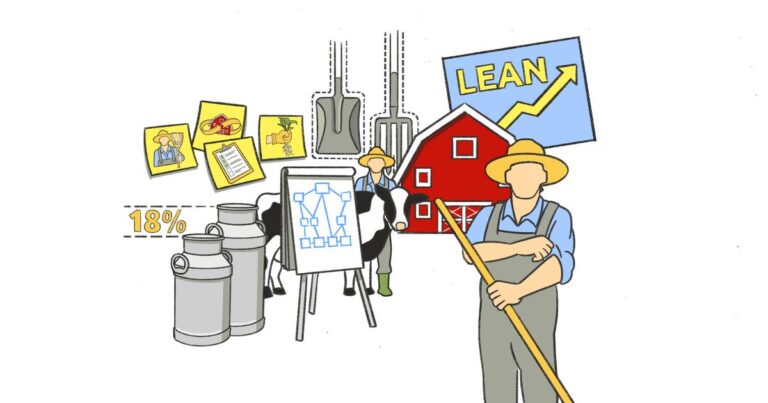High-Paying Jobs in Australia With Immediate Hire | 189 Visa Australia
Are you interested in a high-paying job with immediate hiring opportunities in Australia? One lesser-known option that’s attracting attention is Fly-In-Fly-Out (FIFO) jobs. These roles offer unique benefits, including competitive salaries, a flexible work-life balance, and the chance to explore Australia’s diverse regions. With Australia’s 189 Visa pathway for skilled workers, FIFO positions offer international candidates a golden opportunity to work in high-demand roles. Here’s everything you need to know about these jobs and how to secure one.
Understanding FIFO Jobs: What Are They?
FIFO jobs, or “Fly-In-Fly-Out” roles, allow employees to work in remote or regional locations without relocating. Employers cover transportation costs, flying workers to the job site for set work periods and returning them home once the job is done. This setup is common in industries like mining, construction, and even agriculture, where job sites are remote and infrastructure is limited.
Why FIFO Jobs are High-Paying and In-Demand
1. Attractive Pay Rates
- Entry-level pay for FIFO jobs ranges between AUD 37 and AUD 42 per hour, depending on experience.
- With full-time hours, this translates to an annual salary between AUD 110,000 and AUD 130,000, making it one of the highest-paying entry-level roles available.
2. Remote Work Necessity
- Due to Australia’s vast geography, many high-demand job sites are far from cities. FIFO arrangements save companies the cost of building permanent housing or amenities, making them willing to offer higher wages to attract skilled workers.
3. Demand for Skilled and Unskilled Labor
- The sectors employing FIFO workers, such as mining and construction, are booming in Australia. Companies need both skilled professionals and unskilled labor, allowing workers from various backgrounds to apply.
Types of FIFO Roles in Australia
There are multiple roles available in the FIFO system. Here’s a quick breakdown of the common ones:
- Trade Assistants
- Trade assistants support skilled workers in construction, mining, and similar sectors. These roles often require minimal prior experience, though certifications can improve eligibility.
- Kitchen Hands
- Kitchen staff are needed to prepare meals at remote job sites. These entry-level positions don’t typically require experience but may require food safety certifications.
- Construction Workers
- With infrastructure projects booming across Australia, construction workers are in high demand. Jobs range from general laborers to skilled roles like machine operators.
- Mining Roles
- Skilled roles in mining, such as drilling or operating heavy machinery, are high-paying and in demand. Previous experience and safety training are usually required.
- Health and Safety Officers
- Safety is crucial in remote job sites, so health and safety officers are essential. These roles require prior experience and qualifications in workplace safety.
Benefits of Working FIFO Jobs
- High Salary Packages
- As mentioned, FIFO roles offer competitive salaries, often including allowances for accommodation, meals, and travel. Workers can earn well above the national average without needing extensive experience.
- Career Growth Opportunities
- Many companies provide on-the-job training and career development programs. Over time, workers in entry-level positions can advance to more specialized and higher-paying roles.
- Work-Life Balance
- A common FIFO schedule is two weeks on, one week off (known as the 2-1 roster). This rotation allows employees to maintain a steady work-life balance, with ample time off to relax, spend time with family, or pursue other interests.
- Travel and Adventure
- Working in FIFO roles means seeing different parts of Australia, often in some of the country’s most scenic and untouched regions. For those who love travel and adventure, this is a significant perk.
How to Secure a FIFO Job in Australia
To get a FIFO job, it’s essential to understand the recruitment process and what employers look for in candidates. Here’s a guide on how to prepare:
1. Start with the Basics: Research and Certifications
- While some entry-level FIFO roles don’t require experience, many jobs need specific certifications, such as first-aid training or trade certifications. Research the qualifications for the role you’re interested in and consider completing necessary training.
2. Prepare a Strong Resume and Cover Letter
- Keep your resume and cover letter concise, highlighting relevant skills, any certifications, and your interest in FIFO work. Emphasize adaptability and teamwork, which are critical for working in remote environments.
3. Consider Recruitment Agencies Specializing in FIFO
- Specialized recruitment agencies help connect workers with FIFO employers. Examples include Hays, Stellar Recruitment, and Chandler Macleod. Registering with these agencies increases your chances of finding the right position.
4. Networking and Building Contacts
- Utilize platforms like LinkedIn to network with professionals in the FIFO sector. Join groups, follow companies that frequently offer FIFO roles, and stay updated on job openings.
5. Use Online Job Boards
- Websites like Seek, Indeed, and Jora often list FIFO positions. Set up job alerts for relevant FIFO roles so you can be among the first to apply when a new opening appears.
189 Visa: Your Pathway to Long-Term Work in Australia
The 189 Visa, also known as the Skilled Independent Visa, is a points-tested visa that allows skilled workers to live and work in Australia permanently. It’s particularly relevant for FIFO roles, as many of the skills in demand align with the requirements of the 189 Visa.
Key Benefits of the 189 Visa:
- Permanent Residency: The 189 Visa grants permanent residency, allowing workers and their families to live in Australia indefinitely.
- No Sponsorship Required: Unlike some visas, the 189 Visa does not require an employer sponsor, making it ideal for skilled workers in high-demand roles like those in the FIFO sector.
- Pathway to Citizenship: After holding the visa for a few years, you can apply for Australian citizenship, further securing your future in the country.
How to Apply for the 189 Visa
- Check the Skilled Occupation List (SOL)
- Ensure your occupation is listed on the SOL, which includes jobs in high demand in Australia. Many FIFO-relevant jobs, such as trade workers, engineers, and healthcare professionals, are on this list.
- Submit an Expression of Interest (EOI)
- An EOI is an online profile you create on SkillSelect, Australia’s portal for skilled migration. Your EOI provides details about your occupation, experience, and qualifications.
- Receive an Invitation to Apply
- If you meet the points threshold and there is demand for your occupation, you may receive an invitation to apply for the 189 Visa. This step is critical, as only invited candidates can submit a formal visa application.
- Complete the Visa Application
- Once invited, submit a complete visa application with documentation, including identification, proof of skills and experience, health checks, and police certificates.
- Receive Your Visa and Start Your Journey
- After approval, you’ll be granted a permanent visa to live and work in Australia. With the 189 Visa, you can join the FIFO workforce or other high-demand sectors across Australia.
What to Look For in a FIFO Job Contract
Working FIFO can be demanding, so it’s essential to understand the terms of your employment contract. Here are key points to consider:
- Employment Location and Rotation Schedule
- Ensure you’re clear on the job location and the work rotation, such as two weeks on, one week off. Understand your rights regarding rest periods and overtime.
- Accommodation and Meals
- Check if the employer provides accommodation and meals during your rotation. Many companies offer housing and meal allowances, but it’s essential to clarify this beforehand.
- Allowances and Benefits
- Your contract should outline travel, meal, and accommodation allowances. Make sure the meal allowance aligns with your dietary needs, as you’ll rely on it during your rotation.
- Worker Rights and Safety Measures
- FIFO jobs are often in remote areas, so it’s crucial to understand safety protocols and your rights. Familiarize yourself with workplace safety laws to protect yourself in demanding environments.
Tips for Success in FIFO Roles
- Adaptability and Flexibility
- FIFO work is often intense, with long hours in a challenging environment. Staying adaptable and flexible will help you thrive in these conditions.
- Building a Support Network
- Many workers in FIFO roles build strong relationships with colleagues, creating a support network that helps reduce feelings of isolation. Take time to connect with fellow workers to make your experience more enjoyable.
- Work-Life Balance
- Use your time off to recharge. Having a solid plan for relaxation and downtime will help you maintain a positive work-life balance.
Final Thoughts
FIFO jobs in Australia are more than just high-paying; they offer a unique lifestyle and work experience that lets you earn well, develop new skills, and explore the country. Whether you’re an experienced worker or just starting, there’s a range of opportunities in FIFO roles across industries. If you’re ready for the adventure and financial rewards, consider applying for a FIFO position through Australia’s 189 Visa program. This pathway not only grants you access to high-paying jobs but also offers a route to long-term residency, making your Australian work dreams a reality.

